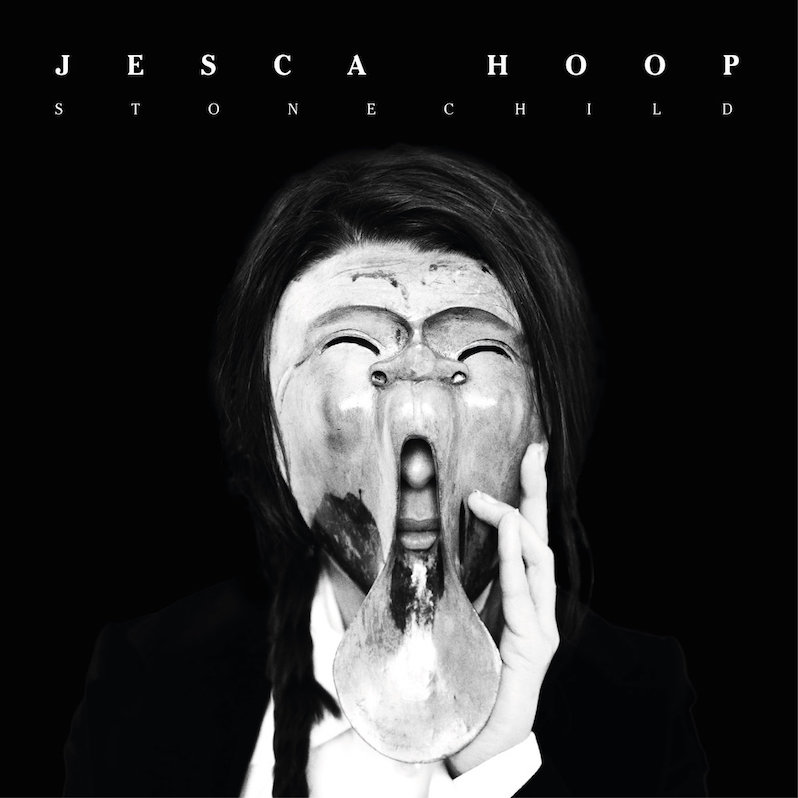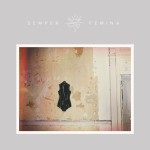Jesca Hoop : Stonechild

Folk music used to be protest music. It still is, but it’s not the most important protest music—not anymore. Punk replaced folk as the most urgent genre, and then hip hop replaced punk. So: are folk musicians supposed to just write about wide-open-fields and starry-eyed-love? Jesca Hoop is still writing about politics, but her songs are often oblique in their criticism. They require the listener to pore over lyric sheets and to listen attentively. Not much music anymore demands this degree of attention. And most of the time, Hoop warrants your devotion. Her new album, Stonechild, is thick with harmonies, like everything else she’s done, and like her last record, Memories Are Now, it’s also about current affairs, but she’s not saying anything outright.
The sound of Stonechild is bare bones. Mostly, it’s just Hoop and her guitar. Any more forward thinking arrangements she hinted at on Memories Are Now are gone. However, lyrically, she follows in the same vein. Much of Memories Are Now dealt with current events in sometimes indirect ways, and Stonechild struggles in much of the same way. Often, the beauty of these songs outweigh the message. It’s easy to let Hoop’s lilting vocals lull you into a state of folk hypnosis, and yet that’s not the point. Urgency is a goal the music does not achieve.
“Outside of Eden” is one of the songs that dips too far into folkie prettiness, leaving a saccharine taste when Hoop is trying to make a point about gender. What point? I’m not quite sure. The lyrics try to do something with Adam & Eve, but what they’re supposed to represent is lost. The song begins, saying, “Come shut in boys/For the girlfriend experience/Enter the code and I’ll taste real.” Hoop elaborates, singing, “Thank the heavens virtual love like this exists.” If she’s taking aim at internet porn, the issue she takes with it is unclear.
The lyrics of “Old Fear of Father,” however, are some of her most pointed. “I love my boys/More than I love my girl/Try not to show it,” she sings. Hoop’s messages are often clear enough to the viewer that her passive singing voice doesn’t need to lift the lyrics into irony. We receive her point without a nudge asking us “do we get it?” “Death Row,” meanwhile, is a song showcasing Hoop’s strengths and weaknesses. It’s expansive, built out of exquisite harmonies and soaring. But the lyrics are a little bit too cute and self satisfied. “Once you’ve inhaled water/May you have a good death/A very good death,” she sings, and it’s hard not to cringe. It’s twee in a way that pushes the limits of good taste.
The end of “Death Row” includes a bit of industrial noise. This isn’t Throbbing Gristle or anything, but it’s one of a few moments when Hoop gives the listener an edge to grab onto. A little ugliness goes a long way for an artist so obsessed with beauty. She pulls out a scratchy drum machine at the end of “0 1 Tear,” and while it’s a nice touch, it’d be nice to hear these surprises happening inside of the songs themselves, rather than adding them as window dressing at the beginning or the end.
A stonechild is a dead fetus that a woman carries for as long as 30 years before giving birth. Apparently, it becomes a dense ball of bones; thick and hard and rough. This is a horrific idea, something Swans would thrust into your brain. The discomfort that this image brings is more potent that anything Hoop does on this record, and it’s unfortunate that she can’t match the power of her album title. Memories Are Now suggested a bigger, more intense Jesca Hoop, but Stonechild doesn’t seem to want to answer that question. It’s a sequel too afraid to go there, the place the original pointed at but didn’t have time to get to. In a word, it’s safe.
Similar Albums:
 Marissa Nadler – For My Crimes
Marissa Nadler – For My Crimes
 Torres – Sprinter
Torres – Sprinter
 Laura Marling – Semper Femina
Laura Marling – Semper Femina

